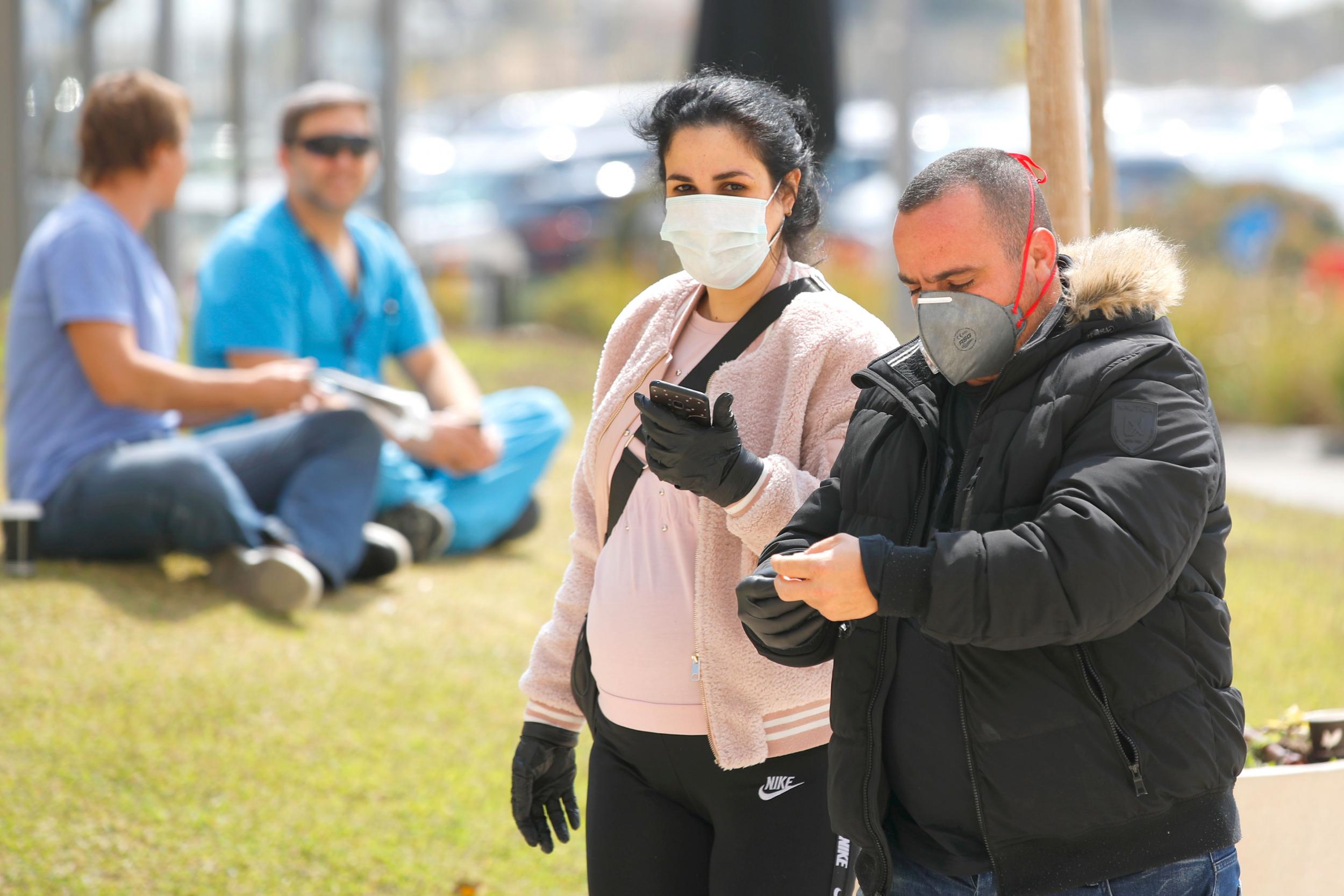Coronavirus: Israel gives intelligence services power to track patients’ phones
Move slammed by rights groups as infringing privacy

Israel’s intelligence service will use phone-snooping technology long used against Palestinian militants to track coronavirus patients and those they were in contact with, some of the most aggressive regulations rolled out in the region to combat the spread of the deadly disease.
The controversial move, first announced by Prime Minister Benjamin Netanyahu, was slammed by right defenders and media commentator who warned it infringed people’s privacy.
They said it was pushed through by a caretaker government serving after another inconclusive election without parliamentary oversight.
Israel’s health ministry has reported 255 coronavirus cases across the country, with more than 45,000 people in mandatory self-quarantine because of possible exposure.
Foreigners are only permitted to enter the country provided they can prove they can self-quarantine while returning Israelis must self-isolate. Restaurants and cinemas have been closed under the latest government restrictions,
On Sunday the cabinet approved the emergency regulations to allow the domestic intelligence agency Shin Bet to track those with the disease and anyone they were in contact with for the last 14 days.
Several counties across the region have ramped up their measures in a bid to stem the outbreak. Sunday night Lebanon announced a state of medical emergency and put the entire country on lockdown, after they reported 99 cases in the country.
All shops bar supermarkets and pharmacies are to stay closed; sirens have blared across the country warning people to stay home and police even cleared one popular waterfront in Beirut to stem the spread of the disease.
On Monday, meanwhile, Egypt suspended all flights, international and domestic, starting from 19 March until 31 March, after stopped schools and university.
Iraq announced a week-long curfew late Sunday sending people racing to the supermarkets to stock up.
The curfew, which is set to begin late Tuesday, includes the suspension of all flights from Baghdad's international airport.
Saudi Arabia suspended work at state institutions for 16 days and shut down shopping malls.
Kuwait, Qatar and Oman have even banned the smoking of shishas - or water pipes- in a bid to control the spread of the disease.
In Iran, however, where more than 850 have died and nearly 15,000 people have been infected in the region's largest outbreak, businesses remained open, despite full lockdowns elsewhere in the Middle East.
Restaurants and cafes have also stayed operational.
On Monday, Iran finally closed the Masoume shrine, a major pilgrimage site in the city of Qom, the epicentre of the country's outbreak where satellite imagery showed the authorities digging trenches of graves.
Iran's leadership also waited until Monday to close the Imam Reza shrine in Mashhad, which draws 25 million Shiite pilgrims a year, including many from neighbouring Iraq, Pakistan and Afghanistan.
Ayatollah Hashem Bathaei, 78, member of the Assembly of Experts, which has the power to appoint or dismiss Iran's supreme leader, was the latest high profile fatality from the COVID-19 illness, the semi-official Fars and Tasnim news agencies reported Monday.
Cabinet ministers, members of parliament, Revolutionary Guard members and Health Ministry officials have caught the virus, compounding fears about Iran's response to the pandemic.
Supreme Leader Ayatollah Ali Khamenei, who is 80 years old, wore disposable gloves at a recent public event, apparently as a precaution.
Back in Israel, Mr Netanyahu defended the country's new phone tracking measures acknowledging that privacy will be compromised.
“This isn’t simple,” Haaretz newspaper reported him as saying. “It involves a certain amount of infringement on the privacy of these people, as we’ll check to see who they came into contact with once they fell sick and what preceded it and what came after it.”
Join our commenting forum
Join thought-provoking conversations, follow other Independent readers and see their replies
Comments
Bookmark popover
Removed from bookmarks